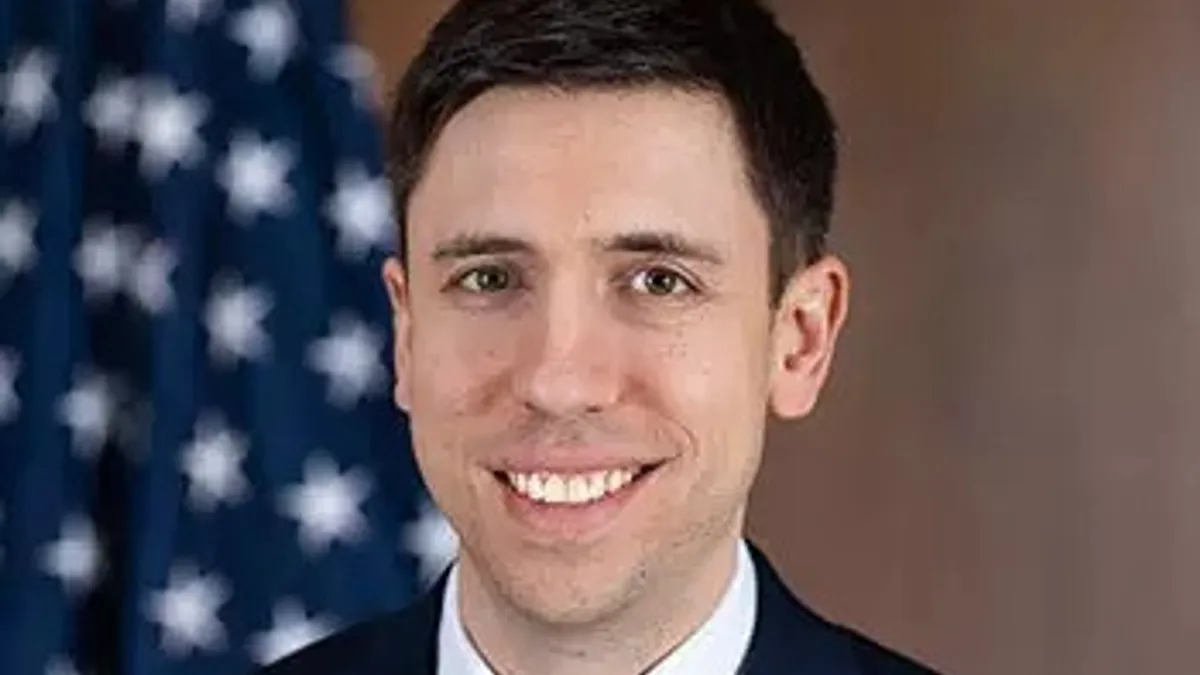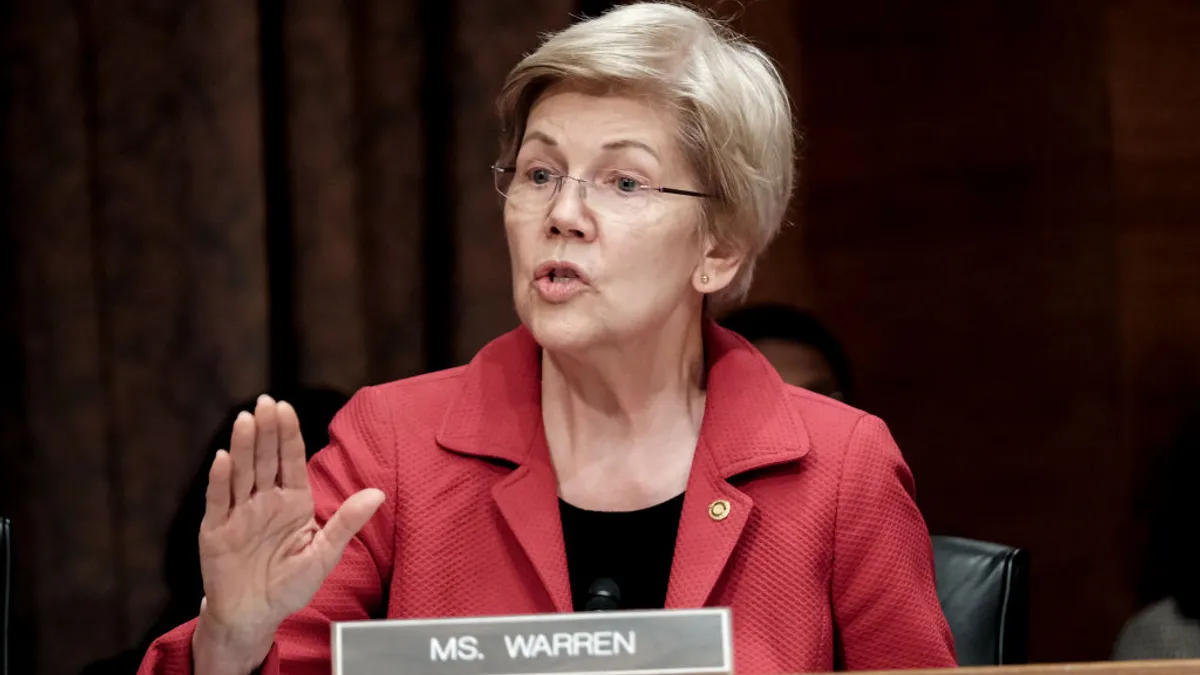Federal Deposit Insurance Corp. Acting Chair Travis Hill laid out 15 priorities for the agency Tuesday, including increasing transparency in bank-fintech partnerships, quickening the bank merger approval process and rehabilitating the agency’s workforce culture.
Hill teased several of the bullet points Jan. 10 in a speech at an American Bar Association event, where he advocated for bank supervision that focuses on core financial risks rather than on “process-related issues that have little bearing on a bank’s … financial condition or solvency.” (That surfaced again Tuesday.)
Some of the priorities should come as little surprise. The top bullet point – a “wholesale review” of the agency’s “regulations, guidance and manuals” – would be expected as the regulator transitions from the Democrat-appointed leadership of now-former Chair Martin Gruenberg, who left office Sunday, to that under Republican Hill.
More pointedly, though, Hill recommends, as a separate priority, that the agency “withdraw problematic proposals from the past three years,” including those touching on brokered deposits (or “hot money”) and corporate guidance.
Hill last summer criticized proposed changes to the FDIC’s hot money rules as “a poor use of our time and resources” because the deposit landscape is “too complex to continually decide which arrangements are brokered and which are not in a fair and risk-sensitive way.”
The bank merger bullet point, too, offers a direct 180-degree turn from Gruenberg-era policy. The FDIC board in September leaned toward requiring more details from merging banks, such as how much of a bank’s business is taken up by small-business or residential loan originations. The agency, at the time, considered looking at a merger’s potential competitive effects, too.
Hill, though, voted against the measure, saying it reflected a bias against mergers and held the potential to make the evaluation process “longer, more difficult and less predictable.”
Where the FDIC in September sought stricter recordkeeping requirements for fintechs partnering with bank, Hill advocated Tuesday – echoing his comments from earlier this month – for a “more open-minded approach to innovation and technology adoption, including … a more transparent approach to fintech partnerships and to digital assets and tokenization.” At the same time, Hill highlighted a desire to “address growing technology costs for community banks.”
Hill also aims to grow the banking community by “encourag[ing] more de novo activity,” he indicated in his priority list.
Other bullet points may represent a back-to-basics sort of approach. For example, Hill said he wants the FDIC to study deposit behavior to get a better sense of “the relative stability of different types of deposits and depositors.” He also said he wants the agency to stop “coloring outside the lines” in terms of its statutory mandates, but he offered no explanation as to what, exactly, that means.
Still other initiatives Hill teased earlier this month merited no mention among the priority list. Around the time Hill’s bullet points went public Tuesday, the FDIC also issued a statement indicating it had withdrawn from the Network of Central Banks and Supervisors for Greening the Financial System.
“‘Greening the financial system’ is not within our authorities or mandate,” Hill said Jan. 10, adding at the time that he expected the FDIC to withdraw from the organization “imminently.”
The fact that withdrawing from the NGFS is not among Tuesday’s bullet points sends the message that the climate policy-related move is not a priority. Rather, it’s done, and it doesn’t need to be talked about, from the leadership perspective.
Hill, however, did make sure to address the issue that has dogged his agency since a November 2023 expose in The Wall Street Journal revealed a pervasive toxic workplace culture that tolerated rampant sexual harassment and retribution.
Hill’s final bullet point Tuesday reflects his aim to “reestablish a strong workforce culture, where misconduct is not tolerated and those who engage in misconduct are held accountable.”
That may not be a regulatory measure, but its inclusion Tuesday indicates that Hill knows enough to recognize that watchdogs will track the agency’s progress under his watch, even if the cultural miscues didn’t start during his tenure.
The FDIC may have been the first federal financial regulator to roll out a vision board for President Donald Trump’s second term. But a number of others saw a changeover in leadership Monday. Trump named Securities and Exchange Commission board member Mark Uyeda as the agency’s acting chair.
The Commodity Futures Trading Commission’s five-member panel voted Monday to confirm Republican commissioner Caroline Pham as the regulator’s acting chair, according to Bloomberg and Reuters.
Other agencies have not seen expected turnover at the top. The Office of the Comptroller of the Currency’s acting chief, Michael Hsu, is still listed on the FDIC’s website (for his secondary role as a board member there). So, too, is Consumer Financial Protection Bureau Director Rohit Chopra. Trump had indicated before taking office that firing Chopra was a “day one” agenda item. As other Biden-era regulators publicized their resignation dates, Chopra, however, did no such thing.
Some regulatory leadership appointments may be temporary. Uyeda, for example, is likely to serve in his role only until Trump’s nominee to lead the SEC, crypto lobbyist Paul Atkins, is confirmed.
Hill may be the FDIC’s acting chief in name, but his priority list should be seen as a signal that he intends to be a more permanent fixture.




















